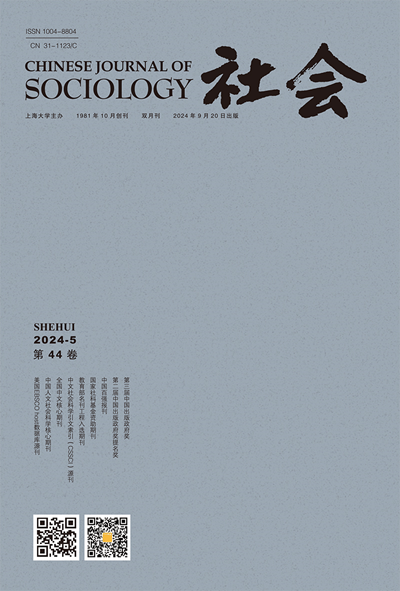中国的社区背景、社会经济地位、精英主义信仰和观念
IF 1.8
4区 社会学
Q2 SOCIOLOGY
引用次数: 2
摘要
先前关于社会经济地位(SES)和精英主义态度之间关系的实证研究得出了不一致的结果。本研究通过考察中国社会经济地位与精英阶层信仰和观念之间的异质关系,为现有文献做出了贡献。利用中国家庭小组研究的具有全国代表性的数据,研究结果表明,个人社会经济地位与支持精英主义信仰呈正相关,但与精英主义观念呈负相关。此外,在社会经济弱势和不平等的社区中,精英阶层信仰的社会经济地位差异更为显著,在这些社区中,社会经济地位相对较高的居民更有可能持有精英阶层信仰。相比之下,在社会经济优势和同质社区中,精英阶层观念中的社会经济地位差距更为显著,在这些社区中,社会经济地位相对较低的个人更有可能将资源分配视为精英阶层。这些发现为理解利己主义和制度正当性理论如何共同解释公众对精英政治态度的社会出身差异提供了理论见解。本文章由计算机程序翻译,如有差异,请以英文原文为准。
Community contexts, socioeconomic status, and meritocratic beliefs and perceptions in China
Prior empirical research on the relationship between socioeconomic status (SES) and meritocratic attitudes has yielded inconsistent findings. This study contributes to the existing literature by examining the heterogeneous relationship between SES and meritocratic beliefs and perceptions across community socioeconomic contexts in China. Using nationally representative data from the China Family Panel Studies, the results show that individual SES is positively related to support for meritocratic beliefs, but negatively associated with perceptions of meritocracy. Moreover, SES disparities in meritocratic beliefs are more salient in socioeconomically disadvantaged and unequal communities, where residents with relatively higher SES are more likely to hold meritocratic beliefs. In contrast, SES gaps in meritocratic perceptions are more significant in socioeconomically advantaged and homogeneous communities, where individuals with relatively lower SES are more likely to perceive the allocation of resources as meritocratic. These findings provide theoretical insights for understanding how self-interest and system justification theories may jointly explain social origin disparities in public attitudes about meritocracy.
求助全文
通过发布文献求助,成功后即可免费获取论文全文。
去求助
来源期刊

社会
Social Sciences-Social Sciences (all)
CiteScore
1.70
自引率
0.00%
发文量
6799
期刊介绍:
The Chinese Journal of Sociology is a peer reviewed, international journal with the following standards: 1. The purpose of the Journal is to publish (in the English language) articles, reviews and scholarly comment which have been judged worthy of publication by appropriate specialists and accepted by the University on studies relating to sociology. 2. The Journal will be international in the sense that it will seek, wherever possible, to publish material from authors with an international reputation and articles that are of interest to an international audience. 3. In pursuit of the above the journal shall: (i) draw on and include high quality work from the international community . The Journal shall include work representing the major areas of interest in sociology. (ii) avoid bias in favour of the interests of particular schools or directions of research or particular political or narrow disciplinary objectives to the exclusion of others; (iii) ensure that articles are written in a terminology and style which makes them intelligible, not merely within the context of a particular discipline or abstract mode, but across the domain of relevant disciplines.
 求助内容:
求助内容: 应助结果提醒方式:
应助结果提醒方式:


